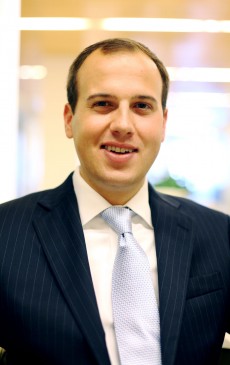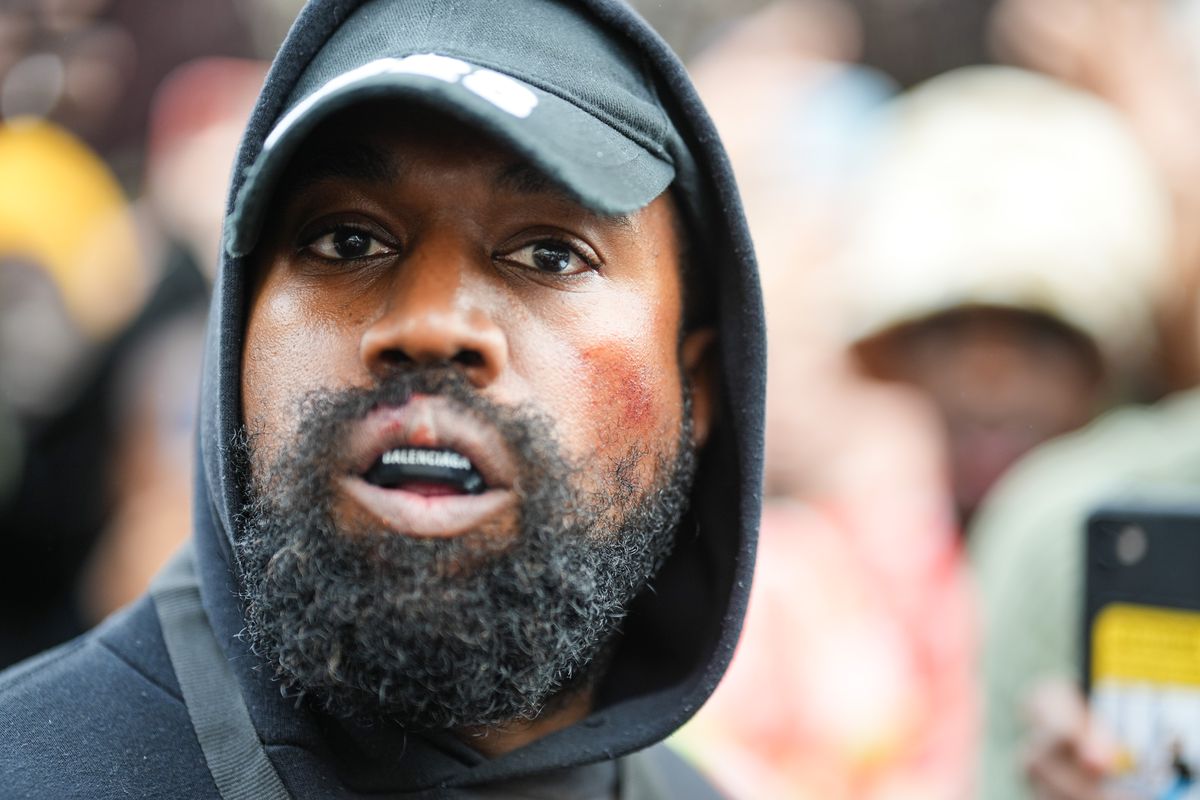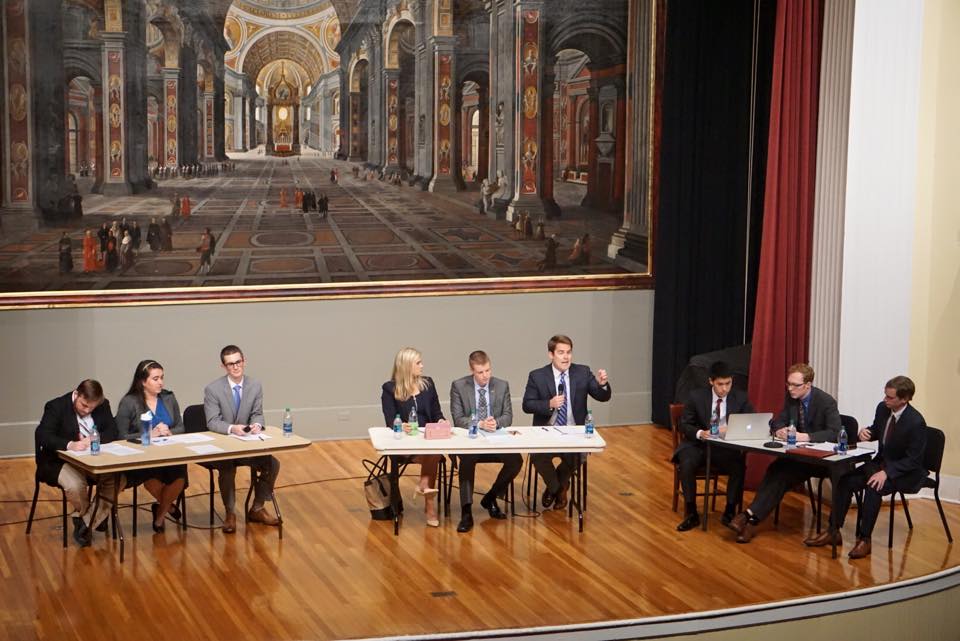
By: Shalin Jyotishi
From football fans reminiscing on the glory days of Vince Dooley, to ambitious high school students (and their parents) aiming for admittance into UGA’s honors program, the Georgia “brand” has a fairly strong foothold in the Southeast. However, as the university grows and its ambitions grow from encompassing not just state and regional concerns, but also national and global issues, support and clout is needed from key constituencies. Our last interview was with Pat Allen, Director for Community Relations, a position that was established in 2003. Mr. Allen told us of UGA’s involvement here in Athens. This time, we take a look at the newly established Office of Federal Relations and its involvement in Washington, D.C.
Tell us about yourself. How did you become the Director of Federal Relations?
I went to school at the University of Georgia and I thought I always envisioned a career in law. During my time at Georgia, I realized I didn’t really want to be a lawyer. At the time I was majoring in political science and later added business. I really enjoyed the intersection between business and politics. After graduation I took at a job in my hometown, Jacksonville, and I hated every minute of it. [laughs] I came back to Athens where I met Chris Carr, who was at the time Senator Isakson’s Chief of Staff. He offered me a job to come back to Athens and work for Senator Isakson, which I quickly accepted … I really enjoyed it. I ended up working for him for a little over two years. I was part of the Leonard Leadership Scholarship Program in Terry [College of Business], which offered me a chance to work for GE [General Electric] for governmental relations, economic development and a little bit of marketing. So I moved to Sacramento, California as part of an executive leadership program with GE. I worked with their politicians working with the West Coast. I moved back to Athens to work with things more internationally. Then I moved to D.C. as part of my last rotation with my program. I really liked Washington. It was critical time for GE, it was right after the Fukushima disaster happened, so I got really involved with that for GE. I ended up finishing the program and accepted a job with GE. While at GE, I stayed in close contact with UGA. When UGA decided to open up an office in D.C. last summer, I was intrigued. It was a great opportunity to build something that didn’t exist before in Washington. So I was approached about the job, I applied and I was the right fit. As of August, I moved into this role.
What is the daily schedule for someone in federal relations? What does the work of your office entail?
Some days you may have professors testifying, some days you may have meetings with our delegation, some days it’s sitting in association meetings. You think of a company’s governmental relations team. They have products and a pact to sell. For Georgia, we don’t have a pact, but we’re selling a product — we’re selling a brand. You would think our delegation would know about UGA and the story. You always have to remind people of our story. What they may know about Georgia may not be what we want the press to know about Georgia, which is how great our research is, how strong we are in public health and infectious diseases, how strong we are in agriculture and applied research. A lot of our work entails in ensuring that different agencies know about what we’re doing. We accomplish this in a multitude of ways. One is bringing politicians and agency heads to Athens to see that for themselves, or even our other campuses in Griffin, in Atlanta or at Skidaway [Institute of Oceanography located in Savannah, Ga]. We also work on bringing faculty here. For example, David Lowery, who is part of the music business program in Terry, was testifying before the judiciary committee regarding fair use and copyright issues. We have our own needs. We surely want to increase our research budget, we want to expand our brand, we want to fight for top students and top faculty, we want more support for financial aid for low-income students, we tackle higher education issues like the student loan rates. We’re also a resource to our members and agencies. We have a lot of smart people. We have lots of talented academics. We want to provide support and share our resources. No day is the same in this job …
In a previous interview, I asked UGA Director of State Relations, Tricia Chastain, if we, in a sense, compete for a “piece of the pie” with other research universities on a state level. How does your office make a case for Georgia in Washington when competing with other institutions?
I would say at the state level, we’re pretty united that my colleague Tricia deals with. Through the Association of Public and Land-Grant Universities (APLU), we’re pretty united in what we’re working towards. Overall, the NIH budget has increased, the NSF [National Science Foundation]budget has increased, and the USDA budget has increased. That’s good for everybody. Grants are competitively funded. Our researchers need to apply for these grants. If there’s more money, there’s more opportunity out there. All universities agree that this is a good thing. [Competition] does get more involved in terms of branding. You want them to know that we’re experts in a particular space. We make sure [people in Washington] know about our CCRC, our agricultural research, infectious disease and our bio-energy. We want them to know that we’re experts in these areas. We also have a regional advantage. We have the CDC in Atlanta. We have a strong working relationship with our peers at Georgia Tech and Emory, both of whom have offices in Washington. We work with our resources to make not just UGA strong, but Georgia strong. A lot of schools that do well have partnerships with other universities, but they’re also partnered with the state. For example, for research, they’re making a regional or state case for why they should have the opportunity to do that work. We have a great working relationship with our state. Overall, I’d say we’re pretty uniform across the board with other universities. We want to see research increase. We’re seeing an innovation deficit. All universities are committed to fixing this and we convey that message in Washington.
During previous interviews, I also asked this question: How does pedigree and ranking fit into conveying UGA’s mission and statement to legislatures? Do legislatures pay attention to pedigree, prestige and rankings?
Washington has been paying a lot of attention to college ratings especially with the newly proposed system, which is concerned with graduation rates and job placement. I think politicians certainly want to know that universities are giving a good value and a good education and that they’ll have the opportunity to get a job. As the state school, it certainly matters for us. Some of the recent rankings we’ve received indicate our great value and reputation. I think our politicians certainly care about that. As colleges get more expensive, things get tougher. As President Morehead announced [in his State of the University address] about freezing dining hall and housing cost, those things make a difference. We need to meet the needs of families to provide an education. There are some rankings that are more academic in nature, but I think overall our members are proud of tell that story. I think it’s an expectation. People expect UGA to do well.
How do alumni have a role in governmental affairs? Do you tap into alumni for support, advice or information?
I work very closely with the alumni association. We have 270,000 graduates–that’s a lot of stories to tell about the value of UGA. One thing we’ve specifically done in Washington is building the alumni advisory council. That was established right after I took the job. It’s a group of twelve UGA graduates who are based in DC who are all in governmental relations field. Some are in health, energy or other areas. GE, UPS, Southern Company, Coca-Cola, United Technologies and Troutman Sanders are all a part of it. We meet quarterly. They’ve met with President Morehead, with Dean Stephanie Lindquist (School of Public and International Policy) and hopefully Dean Donald Leo (College of Engineering) in the future. I go to them for advice all the time. We also want to connect with their business for collaboration, research or other important issues. Alumni allow us to be bigger and better. People who went to Georgia who are here in Washington want to help. They want to see UGA succeed and they want to help our students succeed.

